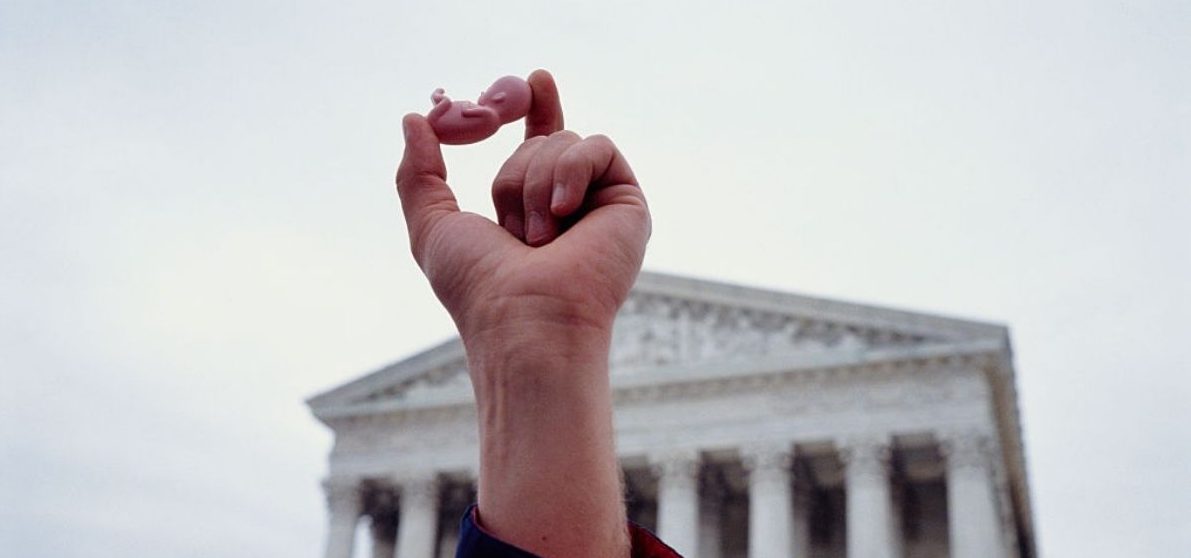Disclaimer: The opinions expressed in this article are solely those of the author.
In his 1852 “What to the Slave is the Fourth of July?” speech, escaped slave Frederick Douglass vehemently criticized abolitionist critics of the U.S. Constitution, including The Liberator editor and former friend William Lloyd Garrison. Garrison had cited the slave trade’s 20-year safe harbor and “three-fifths compromise” clauses as evidence that America’s founding document represented “a covenant with death and an agreement with Hell.” Garrison even argued in favor of northern secession.
Yet Douglass proclaimed the Constitution a “glorious liberty document.”
In contrast to Garrison, Douglass advocated the continuation of the Union as the surest path to slavery’s eventual abolition. He relied on the spirit of both the Declaration of Independence and Constitution — the Founders’ avoidance of the term “slavery” (believing the institution would and should fade) and several clauses that would immediately end slavery if applied to Black people (the Bill of Attainder Clause, the Guarantee of Republican form of government, etc.) to support these beliefs.
Douglass knew all too well the realities of 19th-century life for Black people. He endured brutal slavery in Maryland and had his hand broken in a scuffle with pro-slavery, anti-abolition ruffians at a speech in Pendleton, Indiana. But despite these hardships, Douglass knew America’s Founding spirit and noble destiny, and could not square these with a pro-slavery interpretation of our basic law. President Lincoln’s revival of the Spirit of 1776 and the Union’s victory over the forces of slavery and disunion vindicated those beliefs. In retrospect, Douglass’s faith in both Divine Providence and America’s national soul looks wisely, as the unshackling of four million American citizens between 1861 and 1865 attests.
But the victory over the pro-slavery interpretation of the Constitution expounded in Dred Scott—which held that Black human beings were not citizens and had “no rights the white man is bound to respect”—has proven temporary. In 1973, the Supreme Court ruled that preborn humans have “no rights which the born are bound to respect,” and states that want to respect the rights of preborn humans cannot legally respect them without running afoul of the Court’s rulings in Roe and Casey.
Recently, dozens of state legislatures across America have challenged those Supreme Court decisions with heartbeat bills and restrictions on abortion at various gestational ages, demonstrating that the issue is not settled law, unlike other controversial decisions such as Miranda v. Arizona or Obergefell v. Hodges. Among these states is Mississippi, whose 15-week abortion restriction (with limited exceptions for mother’s life and health) reached the highest court in the land for oral arguments on December 1.
In his presentation to the Supreme Court, Mississippi Solicitor General Scott Stewart, representing the state that produced Jefferson Davis, connected the historical mistreatment of Black people with today’s abortion jurisprudence. Stewart remarked in his closing argument:
In his dissent in Plessy v. Ferguson, Justice Harlan emphasized that there is no caste system here. The humblest in our country is the pure, the most powerful… It took the Court 58 years to recognize the truth of those realities in a decision (Brown), and that was the greatest decision this Court ever reached. We’re running on 50 years of Roe… It is an egregiously wrong decision that has inflicted tremendous damage on our country.
Stewart hit the nail on the head. The justices in Roe and Casey only inflamed a social battle they hoped to defuse, as Chief Justice Taney did with slavery in Dred and the Court did with segregation in Plessy v. Ferguson. The Court must admit its error and re-affirm the people’s sovereignty over the abortion issue. Those who value unborn life should be allowed to act without the Court slandering our Founders and misrepresenting our history by telling them that the Constitution disallows it.
In June, the Supreme Court will decide a legal question: should they adhere to precedent, pretending that the people created a positive right to abortion upon ratifying the Bill of Rights in 1791 and the Fourteenth Amendment in 1868, or not? But behind this purely legal question is a moral one touching our nation’s heart: is America founded on “a covenant with death, an agreement with Hell,” wherein rights to extinguish others’ basic liberties wait for interested partisans to discover in the Constitution? Or are we founded on the opposite principle — that of equal justice before the law and of guaranteeing the rights of even our most vulnerable citizens? Our shame upon remembering Dred Scott and Plessy reveals the answer.
There is no “right to do wrong” at the heart of our fundamental law. There was not in 1857, and there is not in 2021. For the sake of both the Court’s legitimacy and the nation’s soul, the Court should bury that myth. It has already bruised, beaten, and buried too many of us. The Court’s responsibility is clear: overrule Roe and Casey and begin restoring Americans’ faith in the Supreme Court’s impartiality. The Constitution is a glorious liberty document for even our most powerless citizens, not a covenant with death for the convenience of the powerful.
Bio: Nathan Richendollar is a summa cum laude economics and politics graduate of Washington and Lee University in Lexington, VA. He lives in Southwest Missouri with his wife Bethany and works in the financial sector.
“Like” Live Action News on Facebook for more pro-life news and commentary!







